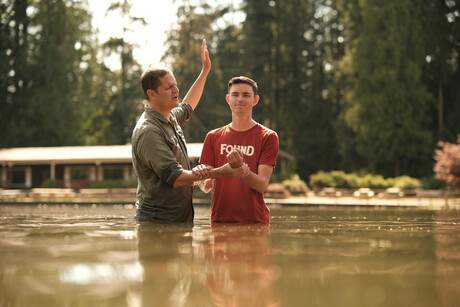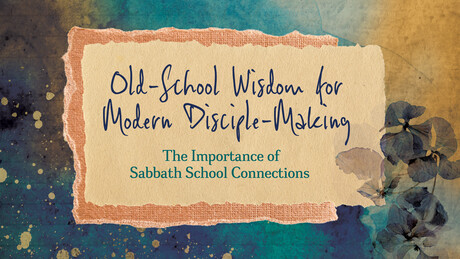On the eve of All Saints Day, October 31, 1517, Martin Luther, a professor at the new University of Wittenberg in Germany, shares 95 statements, or theses, as a call to scholarly discussion. The theses are composed in Latin, the language of scholarship of his day, and addressed to his fellow scholars. He invites either face-to-face or written engagement with his ideas. If disguised in polite, academic garb, the theses are passionate and fiery to the core. Here are just three of them:
- No. 32: Those who believe that they can be certain of their salvation because they have indulgence letters will be eternally damned, together with their teachers.
- No. 50: Christians are to be taught that if the pope knew the exactions of the indulgence preachers, he would rather that the basilica of St. Peter were burned to ashes than built up with the skin, flesh and bones of his sheep.
- No. 79: To say that the cross emblazoned with the papal coat of arms, and set up by the indulgence preachers, is equal in worth to the cross of Christ is blasphemy.[1]
Translated and disseminated, Luther’s theses spark the Reformation, a major schism in Christian history that reverberates to our own day.
Seventh-day Adventists have a special love for the Reformation, long regarding its flawed leaders as heroes of the faith, inspired by God and our spiritual forebearers. The 500th anniversary of Luther’s Ninety-five Theses and the beginning of the Reformation offers us an opportunity to assess afresh our relationship to Martin Luther and his colleagues. Five hundred years on, what is left of the Reformation? What still matters?
Central Truths Remain
Central truths recaptured by the Reformation should still stir our hearts and invite our fresh affirmation. Such central truths are often summarized by five Latin phrases, the “five solas”: 1) sola scriptura, “Scripture alone,” confirming the Bible as our highest authority; 2) sola fide, “faith alone,” confessing that we are saved only through faith in Christ; 3) sola gratia, “grace alone,” announcing that we are saved by the grace of God alone; 4) solus christus, “Christ alone,” testifying that Jesus Christ and no other is our Lord and Savior; and 5) soli deo gloria, “to the glory of God alone,” urging that we should live only for the glory of God. Allow me to explore two of these truths and their significance for us today.
Surely sola fide still matters. Martin Luther found in Romans 1:17 a salve for his tortured soul: “‘The righteous shall live by faith.’”[2] In Luther’s pastoral counsel to others we see what this means for him. Late in life, in a bid to console his friend Spalatin, who brooded over his mistakes, Luther wrote, "Now join with us prodigious and hardened sinners lest you diminish Christ for us. He is not a savior of fictitious or petty sinners but of genuine ones, not only the lowly but also the big and powerful ones; indeed he is the savior of all sinners. My Staupitz consoled me this way when I was downhearted. You can be a bogus sinner and have Christ for a fictitious savior. Instead, get used to the fact that Christ is a genuine savior and that you are a real sinner."[3]
Luther battled against the views of John Agricola and the Antinomians, those who believed the moral law was of no use or obligation under the gospel dispensation of grace. His efforts demonstrated that a commitment to sola fide does not militate against love for God’s law. Luther was concerned that believers no longer under the pope’s authority would take salvation for granted, disregarding and disobeying the Ten Commandments. He insisted on his own love and appreciation for them: “I myself as old and as learned as I am, recite the commandments daily word for word as a child.”[4]
Sola Fide Today
Seventh-day Adventists have not been immune to the dangers of either legalism or antinomianism. What should we make of sola fide today? How can we embrace with joy the idea of Christ alone as the Source of our salvation and find real motivation and help in God’s law? Is there a way for us as a movement to stabilize our understandings of the biblical teaching of salvation? Can we avoid exchanging one skewed emphasis for another, avoid being “carried along by every wind of doctrine” (Eph 4:4, ESV)?
As I have noted, another leading idea of the Reformation is that doctrine should rest on Scripture alone (sola scriptura). The Bible stands supreme as the source for truth over all other sources including the encyclicals of popes and the decisions of church councils. Luther’s declaration at Worms still rings in the hearts of Protestants: "Unless I am convinced otherwise by evidence from scripture or incontestable arguments, I remain bound by the scripture I have put forward. As long as my conscience is captive to the word of God, I neither can nor will recant, since it is neither safe nor right to act against conscience. God help me. Amen."[5]
Impressively, Luther was not content to simply formulate and celebrate such a view. He was committed to translating God’s Word into the German language of his people, using his skill as scholar and linguist to accurately convey the truths of Scripture. William Tyndale, drawing inspiration from Luther (and Erasmus) would articulate his passion for this mission of making God’s Word available and accessible in an argument with a cleric who claimed, “We would be better off without God’s laws than the pope’s [laws].” To which Tyndale replied, “I defy the Pope and all his laws ... if God spares my life, before long I will cause a boy that drives the plow to know more of the Scriptures than you do.”[6] Beyond translation, Luther invested himself in nourishing the new, gospel-based churches through training and mentoring pastors equipped to teach God’s Word and through providing Bible-infused worship materials, especially hymns.
If this leading conviction of the Reformation — sola scriptura — remains important and active, what does it demand of us? How committed are we to careful, disciplined study of God’s Word? In the context of an increasingly secular and post-Christian nation, what call is upon us? In an age when written texts are rapidly giving way to visually based communication how are we to respond as inheritors of the belief in sola scriptura and the mission to make God’s Word accessible?
Ellen White's Standard
Ellen White holds forth a high standard for us as we reflect on the Reformation and how it applies to us today: "The Reformation did not, as many suppose, end with Luther. It is to be continued to the close of this world’s history. Luther had a great work to do in reflecting to others the light which God had permitted to shine upon him; yet he did not receive all the light which was to be given to the world. From that time to this, new light has been continually shining upon the Scriptures, and new truths have been constantly unfolding."
Luther and his co-laborers accomplished a noble work for God; but, coming as they did from the Roman Church, having themselves believed and advocated her doctrines, it was not to be expected that they would discern all these errors. It was their work to break the fetters of Rome and to give the Bible to the world; yet there were important truths that they failed to discover and grave errors that they did not renounce.[7]
We are not simply to recapture the truths of the Reformation. We are to move forward with the same fervor and dedication the reformers displayed toward new frontiers of truth and commitment!
As we grow evermore chronologically distant from the Reformation, we must become ever more intentional in telling its stories; treasuring its heroes; and valuing, activating and extending its truths. In this 500th anniversary of its start, I invite you to invest yourself in that effort. Read a good book or two about the Reformation. (Why not tackle a detailed biography of one of its heroes? Or choose a children’s book on one of the reformers and read it serially at family worshp?).[8] Celebrate the 500th anniversary by creating opportunities to reflect with family members and your church fellowship on the significance of the Reformation and attending anniversary events scheduled in your community. Decide — as Luther and his colleagues did in their time — what it means to live the truths of the Reformation and then, by God’s grace, act on that decision.










